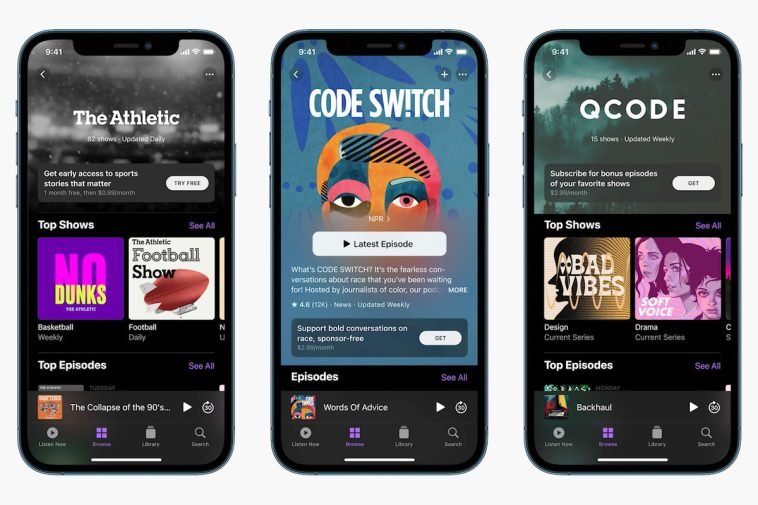Introduction.
Podcasting has taken off in a big way, and it’s not just the big networks or influencers anymore—just about anyone with a message can start their own podcast.
But while creating content is one part of it, distributing that content effectively is another. This is where the RSS feed comes in.
An RSS feed is the backbone of podcast distribution. It’s what allows episodes to get automatically pushed to platforms like Apple Podcasts, Spotify, and others.
Without it, your listeners would have to manually check for new episodes, which is less than ideal.
So, if you’re wondering how to get an RSS feed for your podcast, you’ve come to the right place. I’ll walk you through why you need one, how to set it up, and even tackle a few common questions on RSS feeds along the way.
Let’s get started.
What Is an RSS Feed for a Podcast?
An RSS feed, which stands for Really Simple Syndication, is essentially a text file with information about each episode of a podcast.
It’s written in a format called XML, which web platforms and podcast apps can read to understand when there’s new content available. The RSS feed includes things like:
- Episode titles and descriptions
- Links to audio files
- Episode metadata (e.g., date published, duration)
- Artwork and show details
In short, it’s the “container” that holds everything a podcast platform needs to know about your show so it can share it with listeners.
How Do I Get an RSS Feed for My Podcast?
There are a few ways to get an RSS feed for a podcast, depending on how you’re hosting it. Here’s a breakdown of the main options:
1. Using a Podcast Hosting Platform
Most podcasters use dedicated hosting platforms that provide an RSS feed automatically. Here’s how it works:
- Choose a hosting provider: Popular options include Anchor, Libsyn, Buzzsprout, and Podbean. Many hosting platforms offer free and paid tiers, so you can choose based on your needs.
- Upload your episodes: Once you’ve created your first episode, upload it to your chosen hosting platform.
- Set up your feed details: Fill out your podcast’s name, description, category, and artwork. The hosting platform uses this information to build your RSS feed.
- Access the RSS feed URL: After you’ve uploaded an episode, the platform will generate an RSS feed link. This is what you’ll submit to podcast directories like Apple Podcasts and Spotify.
Most hosting platforms have a dedicated section for the RSS feed URL, making it easy to find.
2. Creating an RSS Feed Manually
If you’d rather host your podcast on your website, you can create an RSS feed manually. This approach is more hands-on and requires some basic coding knowledge in XML. Here’s the process in a nutshell:
- Write an XML file: Each episode requires specific tags (like
<item>for the episode and<title>,<description>, and<link>for each entry). - Host the XML file on your website: You’ll need a server or website to host the XML file.
- Update it with each new episode: Every time you release a new episode, you’ll need to add it to the XML file manually.
3. Using WordPress and Plugins
If you run a WordPress site, you can use podcast plugins like Seriously Simple Podcasting to generate an RSS feed automatically. With WordPress, the process looks like this:
- Install a podcast plugin: There are several popular podcast plugins that create an RSS feed for you, such as Seriously Simple Podcasting or PowerPress.
- Upload episodes via the plugin: After setting up the plugin, you’ll have a section in WordPress where you can upload episodes, add titles, descriptions, and artwork.
- Access your RSS feed: Once you publish an episode, the plugin generates an RSS feed that you can use on major podcast platforms.
Pros and Cons of Each Method
Each option has its advantages and disadvantages, depending on your needs and resources.
Using a Podcast Hosting Platform
Pros:
- Quick and easy setup
- Automatically generates and updates the RSS feed
- Hosting services offer analytics, storage, and other podcast-specific features
Cons:
- May require a monthly subscription
- Less control over customization
Creating an RSS Feed Manually
Pros:
- Full control over feed content
- Cost-effective if you already have a server or website
Cons:
- Time-consuming and requires coding knowledge
- Difficult to manage with frequent episodes
Using WordPress and Plugins
Pros:
- Integrates with your existing site
- Allows you to manage everything from one place
Cons:
- Requires ongoing site maintenance
- Limited customization depending on the plugin
Frequently Asked Questions
1. Can I switch podcast hosting platforms and keep my RSS feed?
Yes, you can switch platforms without losing your feed, though it requires some steps to ensure a smooth transition. Most hosting platforms offer a redirect option, so you can retain your subscriber base.
2. How do I submit my RSS feed to podcast directories?
Once you have the RSS feed link, you’ll need to submit it to directories like Apple Podcasts, Spotify, and Google Podcasts. Each directory has its own submission process but generally involves logging into your account and pasting the RSS link.
3. Can I edit an RSS feed after it’s been created?
If you use a podcast hosting platform or WordPress plugin, changes will automatically update the RSS feed. For a manually created feed, you’ll need to edit the XML file directly.
4. Is there a cost associated with creating an RSS feed?
If you use a free podcast hosting service like Anchor, there’s no cost. Paid platforms and plugins might charge for additional features like analytics and expanded storage.
Conclusion
Getting an RSS feed for your podcast is essential if you want your episodes to reach a wider audience automatically.
Whether you choose a podcast hosting platform, build your own RSS feed, or use a WordPress plugin, there are plenty of ways to get started based on your needs and level of experience.
So, what’s holding you back from setting up your RSS feed?





GIPHY App Key not set. Please check settings